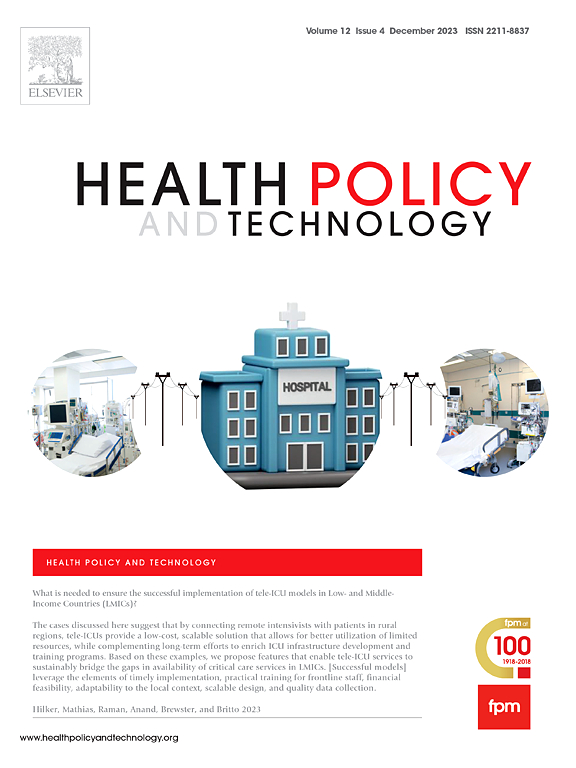The European Health Data Space: Will it be emergency-ready?
IF 3.4
3区 医学
Q1 HEALTH POLICY & SERVICES
引用次数: 0
Abstract
Objective
The European Health Data Space (EHDS) aims to facilitate the sharing of health data for healthcare and research purposes. But how it would function to help the Union and the Member States to respond to a public health emergency is less researched. This paper aims to study the relevance of the EHDS for a public health emergency.
Method
Drawing on insights from the literature and our study of the legal texts, we first explore potential benefits of EHDS during a public health emergency, and then assess its emergency-readiness.
Results
Despite many promising benefits generated by EHDS, its application in the area of public health emergency response is hardly straightforward. While the amended and adopted text is more aware of the possibility of a public health emergency, its emergency-readiness is suboptimal. If not properly addressed, the EHDS Regulation will fail to reach its potential in mitigating a public health emergency.
Conclusions
We recommend lawmakers at both Union and national levels consider defining an expedited procedure during an emergency and build a comprehensive emergency regime of the European Health Union that facilitates quicker data collection and sharing.
Public Interest Summary
The European Health Data Space (EHDS) aims to facilitate access to health data for healthcare delivery (primary use of data) and to provide a data sharing system for health research, policymaking, statistics and education activities (secondary use of data). This paper summarises some potential benefits of EHDS for better public health emergency response and discusses possible problems that might hinder EHDS from realising its full potential. Emergency-readiness is considered suboptimal in the adopted text of EHDS (April 2024), leaving it uncertain whether EHDS would speed up responses to emergencies while keeping health data sharing in a rule-based governance framework. We recommend lawmakers at both Union and national levels consider defining an expedited procedure during an emergency and build a comprehensive emergency regime of the European Health Union. Such a regime should link to the public health emergency recognition under Regulation (EU) 2022/2371, aiming to facilitate quicker data collection and sharing.
求助全文
约1分钟内获得全文
求助全文
来源期刊

Health Policy and Technology
Medicine-Health Policy
CiteScore
9.20
自引率
3.30%
发文量
78
审稿时长
88 days
期刊介绍:
Health Policy and Technology (HPT), is the official journal of the Fellowship of Postgraduate Medicine (FPM), a cross-disciplinary journal, which focuses on past, present and future health policy and the role of technology in clinical and non-clinical national and international health environments.
HPT provides a further excellent way for the FPM to continue to make important national and international contributions to development of policy and practice within medicine and related disciplines. The aim of HPT is to publish relevant, timely and accessible articles and commentaries to support policy-makers, health professionals, health technology providers, patient groups and academia interested in health policy and technology.
Topics covered by HPT will include:
- Health technology, including drug discovery, diagnostics, medicines, devices, therapeutic delivery and eHealth systems
- Cross-national comparisons on health policy using evidence-based approaches
- National studies on health policy to determine the outcomes of technology-driven initiatives
- Cross-border eHealth including health tourism
- The digital divide in mobility, access and affordability of healthcare
- Health technology assessment (HTA) methods and tools for evaluating the effectiveness of clinical and non-clinical health technologies
- Health and eHealth indicators and benchmarks (measure/metrics) for understanding the adoption and diffusion of health technologies
- Health and eHealth models and frameworks to support policy-makers and other stakeholders in decision-making
- Stakeholder engagement with health technologies (clinical and patient/citizen buy-in)
- Regulation and health economics
 求助内容:
求助内容: 应助结果提醒方式:
应助结果提醒方式:


